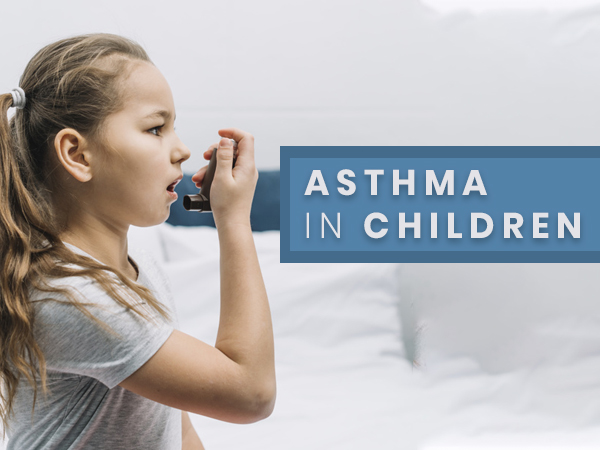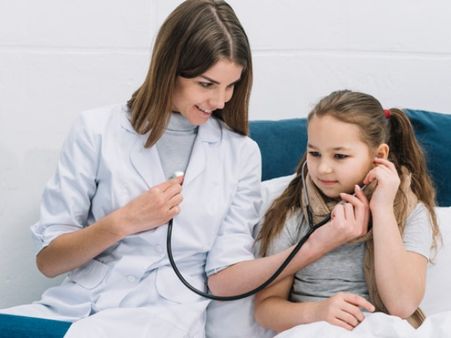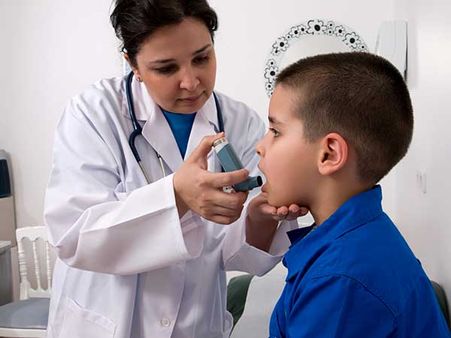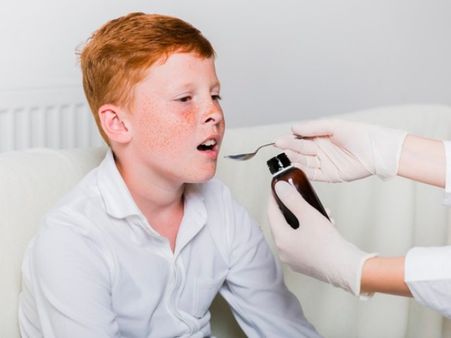Just In
- 1 hr ago

- 5 hrs ago

- 9 hrs ago

- 9 hrs ago

Don't Miss
- News
 Lok Sabha Election 2024: Polling Underway For 12 Seats In Rajasthan
Lok Sabha Election 2024: Polling Underway For 12 Seats In Rajasthan - Technology
 TSMC's Global Expansion Could Drive Up Chip Costs, Making Tech More Expensive
TSMC's Global Expansion Could Drive Up Chip Costs, Making Tech More Expensive - Automobiles
 Suzuki Motorcycle India Achieves Production of Over 8 Million Two-Wheelers
Suzuki Motorcycle India Achieves Production of Over 8 Million Two-Wheelers - Movies
 LSD 2 Review: Dibakar Banerjee Presents An Entertaining And Relatable Love S*X Aur Dhokha
LSD 2 Review: Dibakar Banerjee Presents An Entertaining And Relatable Love S*X Aur Dhokha - Finance
 Iran-Israel War: How It Impacts Nifty, Sensex And Indian Rupee
Iran-Israel War: How It Impacts Nifty, Sensex And Indian Rupee - Sports
 IPL 2024: 'It was his idea only' - Rinku Singh reveals Gautam Gambhir's masterstroke with Sunil Narine move
IPL 2024: 'It was his idea only' - Rinku Singh reveals Gautam Gambhir's masterstroke with Sunil Narine move - Education
 Karnataka SSLC Result 2024 Soon, Know How to Check Through Website, SMS and Digilocker
Karnataka SSLC Result 2024 Soon, Know How to Check Through Website, SMS and Digilocker - Travel
Telangana's Waterfall: A Serene Escape Into Nature's Marvels
Childhood Asthma, Its Symptoms, Causes, Prevention & Treatment
World Asthma Day is observed every year on the first Tuesday of May. World Asthma Day 2020 falls on 5 May. The annual observance is organised by the Global Initiative for Asthma (GINA), with the aim of raising awareness, care and support for the people affected by the respiratory disease [1].

World Asthma Day was initiated in 1998 and this year (2020), the Global Initiative for Asthma (GINA) has decided the World Asthma Day will be May 5 every year [2]. World Asthma Day 2020 theme is 'Enough Asthma Deaths.'

On this World Asthma Day, we will look into the topic of childhood asthma or asthma in children. In general, asthma is a chronic disease which causes inflammation and narrowing of airways in the lungs. It causes wheezing (a whistling sound when you breathe), chest tightness, shortness of breath, and coughing [3].
During an asthma attack, your airway muscles constrict and mucous membranes produce excess mucus, blocking your breathing. Allergens such as dust, spores, animal hairs, cold air, infection and even stress can trigger asthma [4].

There are many different types of asthma, brought on by different triggers. Some of the most common types of asthma are adult-onset asthma, allergic asthma, asthma-COPD overlap, nonallergic asthma, occupational asthma and childhood asthma [5].

What Is Childhood Asthma?
Childhood asthma also termed as pediatric asthma, is the same as that of asthma reported in adults. However, childhood asthma has different symptoms in comparison to other types of asthma. When a child has asthma, the lungs and airways become easily inflamed when exposed to triggers such as inhaling pollen or catching a cold or other respiratory infection [6].
The symptoms of this respiratory problem can make it difficult for your child to do everyday activities such as going to school, playing and even sleeping. There is no cure for asthma in children but there are ways through which you can prevent the triggers and hence, limit the damage to the child's growing lungs [7].

What Are The Signs & Symptoms Of Childhood Asthma?
The symptoms of childhood asthma can vary from one child to another and a child can have different symptoms from one episode to the next. The most common symptoms of childhood asthma are as follows [8]:
- A whistling or wheezing sound when breathing out
- Shortness of breath
- Chest congestion or tightness
- Frequent coughing, especially during play or exercise
- Lack of energy
- Trouble sleeping because of coughing or breathing problems
- Rapid breathing
- Tight neck and chest muscles
- In infants, trouble eating or grunting while eating
- Pulling in of chest and sides as they breathe
- Excessive sweating
- Stopping in the middle of a sentence to catch a breath
- A belly that sinks in under their ribs when they try to get air
- Widened nostrils
- Fast heartbeat
- Chest pain
Severe symptoms of childhood asthma that requires immediate medical attention are as follows [9]:

What Are The Causes Of Childhood Asthma?
Health experts assert that the causes of childhood asthma are not fully understood. Some of the possible causes of pediatric asthma are as follows [10]:
- Exposure to environmental pollutants, such as cigarette smoke or other air pollution
- Inherited tendency to develop allergies
- Parents with asthma
- Airway infections at a very young age

What Are The Triggers Of Childhood Asthma?
The triggers vary from child to child and in some cases, the reaction trigger can be delayed, making it more difficult to identify it. Some of the common triggers of childhood asthma are as follows [11]:
- Allergens like cockroaches, dust mites, mould, pet dander, and pollen
- Irritants like air pollution, chemicals, cold air, odours, or smoke
- Airway infections like colds, pneumonia, and sinus infections
- Stress
- Physical activity
In some children, asthma symptoms occur with no apparent triggers.

What Are The Risk Factors For Childhood Asthma?
Factors that can increase your child's likelihood of developing asthma are as follows [12]:
- Previous allergic reactions, including skin reactions, food allergies or hay fever
- Respiratory conditions, such as a chronic runny or stuffy nose (rhinitis), inflamed sinuses (sinusitis) or pneumonia
- Exposure to tobacco smoke, including before birth
- Obesity
- A family history of asthma or allergies
- Living in an area with high pollution
- Heartburn (gastroesophageal reflux disease, or GERD)
- Sex (male)
- Ethnicity [13]

What Are The Complications Of Childhood Asthma?
Childhood asthma can cause a number of complications and they are as follows [14]:
- Severe asthma attacks that require emergency treatment or hospital care
- Getting behind in school
- Poor sleep and fatigue
- Permanent damage in lung function
- Symptoms that interfere with normal physical activities

How Is Childhood Asthma Diagnosed?
Asthma, in general, can be difficult to diagnose because a number of childhood conditions can have symptoms similar to those caused by asthma [15]. The doctor will analyse the symptoms and will determine whether your child's symptoms are caused by asthma, a condition other than asthma, or both asthma and another condition.
The following conditions can cause asthma-like symptoms in children [16]:
- Airway abnormalities
- Sinusitis
- Acid reflux or gastroesophageal reflux disease (GERD)
- Dysfunctional breathing
- Rhinitis
- Respiratory tract infections such as bronchiolitis and respiratory syncytial virus (RSV)
- Lung function tests
- Exhaled nitric oxide test help determine whether steroid medications might be helpful for your child's asthma
- Allergy skin testing, where the skin is pricked with extracts of common allergy-causing substances and observed for signs of an allergic reaction
In order to diagnose the condition, the doctor may prescribe the following tests [17]:

What Are The Treatments For Childhood Asthma?
The first form of treatment for childhood asthma depends on the severity of your child's asthma and the goal of asthma treatment is to keep symptoms under control. Treating asthma involves both preventing symptoms and treating an asthma attack in progress [18].
For children younger than age 3 who have mild symptoms of asthma, the doctor might use a wait-and-see approach because the long-term effects of asthma medication on infants and young children are not clear [19].
Then, once the cause and triggers are understood, long-term medications will be prescribed to reduce the inflammation in your child's airways that leads to symptoms and they are as follows [20]:
- Inhaled corticosteroids
- Combination inhalers
- Leukotriene modifiers
- Immunomodulatory agents
- Oral and intravenous corticosteroids
- Short-acting beta-agonists
Note: Corticosteroids are a class of drug that lowers inflammation in the body.

Can Childhood Asthma Be Prevented?
Careful planning and avoiding asthma triggers can help prevent asthma attacks. Consider the following preventive measures [21]:
- Maintain low humidity at home
- Keep indoor air clean
- Use air conditioner as it helps reduce the amount of airborne pollen from trees, grasses and weeds that finds its way indoors
- Clean the house regularly
- Reduce your child's exposure to cold air
- Help your child maintain a healthy weight
- Don't smoke around your child
- Encourage your child to be active as regular activity can help the lungs to work more efficiently

On A Final Note…
It can be stressful to help your child manage asthma but you need to be the support system for your child and focus attention on what your child can do, not on limitations. Make treatment a regular part of life and get help, when necessary.
-
 healthDelhi Air Quality To Worsen With Stubble Burning: How To Stay Safe? Tips For People With Asthma
healthDelhi Air Quality To Worsen With Stubble Burning: How To Stay Safe? Tips For People With Asthma -
 wellness5 Asthma-Friendly Foods: Breathe Easy With These Foods For Better Lung Health
wellness5 Asthma-Friendly Foods: Breathe Easy With These Foods For Better Lung Health -
 disorders cureH3N2: Respiratory Illnesses Caused By H3N2 Influenza
disorders cureH3N2: Respiratory Illnesses Caused By H3N2 Influenza -
 disorders curePigeon Poop Can Lead To Health Hazards In Asthma Patients In Bengaluru; Know Pigeon Poop Related Health Risks
disorders curePigeon Poop Can Lead To Health Hazards In Asthma Patients In Bengaluru; Know Pigeon Poop Related Health Risks -
 wellnessHoli: Holi Precaution Tips For Asthmatic People
wellnessHoli: Holi Precaution Tips For Asthmatic People -
 nutritionSide Effects Of Eating Curd Every Day; Who Should Avoid It
nutritionSide Effects Of Eating Curd Every Day; Who Should Avoid It -
 wellnessDiwali 2022: 10 Tips To Maintain Healthy Lungs This Diwali
wellnessDiwali 2022: 10 Tips To Maintain Healthy Lungs This Diwali -
 wellnessHolistic Ayurveda Management Of Asthma (Expert Article)
wellnessHolistic Ayurveda Management Of Asthma (Expert Article) -
 wellnessExpert Article: Exploring The World Health Day 2022 Theme Through An Ayurveda Perspective
wellnessExpert Article: Exploring The World Health Day 2022 Theme Through An Ayurveda Perspective -
 healthCipla To Donate 5,000 Nebulisers To Primary Health Care Centres
healthCipla To Donate 5,000 Nebulisers To Primary Health Care Centres -
 disorders cureNocturnal Asthma: Causes, Symptoms, Risk Factors In Children And Treatment
disorders cureNocturnal Asthma: Causes, Symptoms, Risk Factors In Children And Treatment -
 wellnessWhy Does Asthma Worsen At Night? Tips To Manage
wellnessWhy Does Asthma Worsen At Night? Tips To Manage


 Click it and Unblock the Notifications
Click it and Unblock the Notifications



